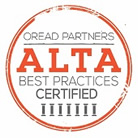February Calculator Updates
/in Updates/by Adan GutierrezWe are constantly updating to reflect any increases or decreases in state fees or underwriter changes to ensure you are pulling accurate quotes each time. Our calculator has been updated to reflect fee changes in the following state(s):
-Maryland
-Ohio
Conveniently get a quote any time, day or night, by simply and accurately inputting the required information and let our interactive fee calculator do the rest. Please call 844-808-8299 or email Solutions@AllegiantReverse.com for further details or for a quote.
January Calculator Updates
/in Updates/by Adan GutierrezWe are constantly updating to reflect any increases or decreases in state fees or underwriter changes to ensure you are pulling accurate quotes each time. Our calculator has been updated to reflect fee changes in the following state(s):
-Wisconsin
We’ve updated our calculator to reflect $1,249,125 as the max claim effective January 1, 2026.
Conveniently get a quote any time, day or night, by simply and accurately inputting the required information and let our interactive fee calculator do the rest. Please call 844-808-8299 or email Solutions@AllegiantReverse.com for further details or for a quote.
Feeding America
/in Updates/by Adan Gutierrez
In the spirit of the season and in appreciation of our customers and clients, we’re excited to share that the Stewart Lender Services (SLS) family of companies has made a donation to Feeding America.
As you may know, Stewart has a formal charitable partnership with Feeding America, and we are proud to support this important cause. Every dollar donated helps provide at least 10 meals to families facing hunger through the Feeding America network of food banks.
We are deeply grateful for our clients—and for each of you. Your hard work and dedication make it possible for us to give back to the communities we serve. I’m proud to work for a company that prioritizes generosity and caring for others.
Wishing you all a joyful holiday season and a wonderful new year! Together, we make the season brighter!
Title Tale: 2025 Reflections & Our Commitment for 2026
/in Updates/by Adan GutierrezWritten by: Mylene Marcelo, Title Manager and Title Officer
As we begin a new year, it feels important to reflect on the work we accomplished together in 2025. Every file we touched, from standard residential homes to large-acreage, multi-parcel properties, carried its own story. Each one reminded us why accuracy, communication, and collaboration matter so deeply in our industry.
This past year brought a wide range of title challenges, including missing reconveyances, outdated trust documentation, probate filings with unresolved heirship, authority questions for trusts and estates, survey issues, and legal descriptions that required careful review. We handled everything from multi-acre rural parcels needing clear boundary verification to survey readings that did not align with recorded descriptions. These situations required us to dig deeper to ensure we were insuring the correct property.
All these situations were not setbacks. They were opportunities to demonstrate the strength, precision, and diligence that define our work and one truth stood out clearly — No transaction succeeds because of one person. It succeeds because of all of us.
Our escrow teams led on the frontlines, communicating with borrowers and loan officers and keeping each file moving. Our title curative department worked tirelessly behind the scenes, resolving defects, verifying ownership, reviewing trusts and probates, confirming legal descriptions, interpreting survey readings, and ensuring large-acreage parcels were correctly identified and insurable. Our underwriters, title production, recording, funding, wiring, and policy teams supported every file with expertise, ensuring each closing met the highest standards of accuracy, compliance, and insurability. From reviewing and approving documents, to reproducing final closing packages, to coordinating and confirming the timely delivery of funds to the lender, every step mattered. No matter what challenges a file brings, and no matter which part of the organization we come from, we all work toward the same goal: a smooth, successful closing for a confident, satisfied borrower. Every role matters. Every contribution moves the file forward. Together, we transform a complex process into a seamless experience for the people who trust us with their homes.
As we enter 2026, we welcome an important milestone. The 1964 generation is turning 62. These borrowers bring rich life experiences, high homeownership, and often the most layered title histories. Trusts updated over time, properties inherited or shared, refinances spanning decades, and in many cases acreage or secondary parcels all require extra care. They are not just becoming eligible for reverse mortgages. They are entering a new chapter where clarity, stability, and protection matter more than ever, and we are ready to support them.
Looking ahead, our commitment for 2026 remains strong. Earlier document collection, clearer communication, stronger verification, and seamless coordination between escrow, curative, underwriting, and production continue to be our focus. Whether it is a city lot or a forty-acre property line that must match the metes and bounds, precision remains essential at every step. Some files will clear quickly. Others may require more time, deeper review, and additional collaboration to resolve properly. And that is okay. Success in our work is not defined by speed or volume. It is defined by accuracy, diligence, and doing what is right for the borrower. Taking the time to correct errors of record, verify descriptions, and resolve title issues thoroughly allows borrowers to move forward with confidence. And this is especially true in reverse-mortgage transactions, where compliance with HUD guidelines is essential to protecting both the borrower and the loan. Ensuring that title is clear, property eligibility is confirmed, and documentation meets HUD requirements allows seniors to access the financial support they need to age in place, manage expenses, and achieve greater peace of mind.
At the end of the day, success is not defined by how fast a file closes. It is defined by knowing it closed correctly. When title is clear, the property is accurately described, and the loan is properly insured in accordance with HUD standards, everyone involved can move forward with certainty, from the borrower to the lender to every team supporting the transaction. That commitment to accuracy, compliance, teamwork, and accountability is what guides us, no matter how simple or complex the transaction may be.
Thank you for trusting us in 2025.
Here’s to 2026, a year of clarity, collaboration, and smooth closings, one property and one borrower at a time.
Video: A Title Wonderland
/in Updates/by Adan GutierrezA Title Wonderland
Lyrics by: Jake Poindexter
Emails ding, phones are ringin’
Orders in, faxes printin’
What a beautiful sight – 4:55 Friday night
Workin’ in a title wonderland
Free and Clear! …naw just kiddin’
We’ve got liens, got conditions
Surprise, surprise We’re staying late tonight
Working in a title wonderland
It’s looking like we’re gonna need a survey
And they’ve only got a single guy in town
And he’s on vacation – it’s his birthday
And no one’s sure when he’ll be back around
Clear to close, call the signer
Any place, you desire
The docs are drawn praying nothing is wrong
Working in a title wonderland
Now the package is delayed because of weather
‘Cause FedEx found a blizzard in July
My sweetie wonders if we’re still together
And everyone around me can’t stop crying
A miracle – still on schedule!
I think my team deserves a medal
Got the client the docs and made the wire cut off
Working in a title wonderland
A few close calls and some cursin’
But at last, we’re disbursin’
It’s a beautiful sight, we funded on time!
Working in a title wonderland
Workin’ in a title wonderland
Updates to the HomeSafe 2nd Product
/in Updates/by Adan GutierrezOur calculator has been updated to remove the title insurance premium field and now includes the Uninsured Property Report (UPR) for the HomeSafe 2nd in all states excluding TX, UT and SC. In the affected states, we will now be issuing the UPR and will no longer be providing a CPL, title commitment, or policy. Please reach out to solutions@allegiantreverse.com with any questions regarding pricing or with any questions regarding the changes to the title and escrow process on this product.
Contact

TF: 844.808.8299
905 Highland Pointe Dr., Suite 150
Roseville, CA 95678
Updates
- February Office ClosureFebruary 2, 2026 - 10:55 am
Our offices will be closed Monday, February 16, 2026, in observance of Presidents Day.
- February WebinarsFebruary 2, 2026 - 10:54 am
The Payoff Process Wednesday, February 11, 2026 10:00 am PST Click here to register. StewartNow Property Profiles/How to Customize Data Lists with TitlePro 247 Wednesday, February 18, 2026 10:00 am PST Click here to register. Download the 2026 Educational Calendar here.
We are
Proud members of

Trusted and Verified by



